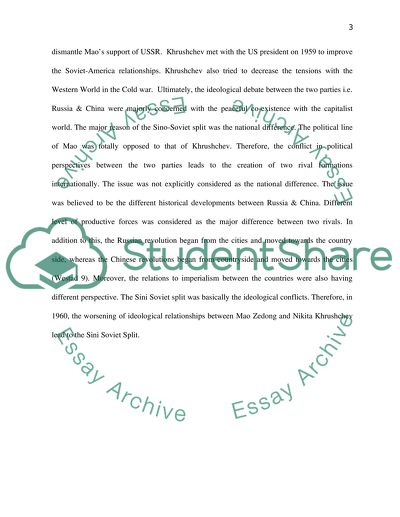Cite this document
(“How did the worsening of ideological relations between Mao Zedong and Essay - 1”, n.d.)
How did the worsening of ideological relations between Mao Zedong and Essay - 1. Retrieved from https://studentshare.org/history/1625116-how-did-the-worsening-of-ideological-relations-between-mao-zedong-and-nikita-krushchev-lead-to-the-sini-soviet-split-in-the-1960s
How did the worsening of ideological relations between Mao Zedong and Essay - 1. Retrieved from https://studentshare.org/history/1625116-how-did-the-worsening-of-ideological-relations-between-mao-zedong-and-nikita-krushchev-lead-to-the-sini-soviet-split-in-the-1960s
(How Did the Worsening of Ideological Relations Between Mao Zedong and Essay - 1)
How Did the Worsening of Ideological Relations Between Mao Zedong and Essay - 1. https://studentshare.org/history/1625116-how-did-the-worsening-of-ideological-relations-between-mao-zedong-and-nikita-krushchev-lead-to-the-sini-soviet-split-in-the-1960s.
How Did the Worsening of Ideological Relations Between Mao Zedong and Essay - 1. https://studentshare.org/history/1625116-how-did-the-worsening-of-ideological-relations-between-mao-zedong-and-nikita-krushchev-lead-to-the-sini-soviet-split-in-the-1960s.
“How Did the Worsening of Ideological Relations Between Mao Zedong and Essay - 1”, n.d. https://studentshare.org/history/1625116-how-did-the-worsening-of-ideological-relations-between-mao-zedong-and-nikita-krushchev-lead-to-the-sini-soviet-split-in-the-1960s.


